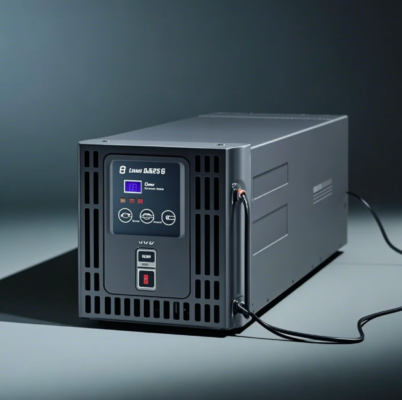Table of Contents
ToggleA UPS, or Uninterruptible Power Supply, is an essential device that provides backup power to electronic systems in the event of a power outage or disruption. It plays a critical role in protecting sensitive equipment from damage and ensuring that operations continue without interruption. But what exactly does a UPS do, and why is it so important? In this article, we will explain the key functions of a UPS and how it works to keep your devices powered and safe.

Understanding a UPS (Uninterruptible Power Supply)
A UPS is a device that provides emergency power to electrical equipment when the main power source fails. Unlike a generator, which takes time to start up, a UPS delivers immediate backup power, allowing for a smooth transition during a power cut. It is typically used for computers, servers, networking equipment, and other critical systems that require continuous power to operate effectively.
How Does a UPS Work?
The main function of a UPS is to provide instant power when the electricity supply is interrupted. When connected to the main power source, the UPS charges its internal battery while simultaneously supplying power to the connected devices. In the event of a power failure, the UPS instantly switches to battery power, ensuring that the connected equipment continues to operate without any downtime.
This seamless transition is crucial for industries where even a brief power disruption could lead to data loss, equipment damage, or production delays. Once the main power is restored, the UPS automatically switches back to normal operation, recharging its battery for the next potential power outage.
Types of UPS Systems
There are several types of UPS systems, each suited for different applications:
- Standby UPS: This is the most basic type of UPS and is often used for home or small office setups. It remains inactive until a power failure occurs, at which point it provides immediate backup power.
- Line-Interactive UPS: This type of UPS offers more advanced features, including voltage regulation. It can adjust small fluctuations in voltage without switching to battery power, providing additional protection to sensitive equipment.
- Online UPS: An online UPS provides the highest level of protection. It continuously supplies power through its battery, ensuring that the connected devices receive a constant and clean power supply, free from any fluctuations or interruptions.
Key Benefits of a UPS
- Prevents Data Loss: A UPS ensures that devices like computers and servers stay powered long enough to save data and perform a safe shutdown in case of an outage. This is especially important for businesses that rely on data integrity.
- Protects Equipment from Power Surges: Power surges or spikes can damage sensitive electronic equipment. Many UPS systems include surge protection features to prevent this type of damage.
- Provides Time to React: A UPS gives users valuable time to take appropriate action during an outage, such as switching to a backup power source or shutting down equipment safely. This is especially vital in environments where equipment uptime is critical.
- Ensures Business Continuity: For industries that cannot afford any downtime, a UPS helps maintain business continuity by keeping critical systems running during power interruptions.
Conclusion
A UPS is a vital piece of equipment that protects your electronic devices and ensures an uninterrupted power supply during electrical disruptions. Whether for personal use, small businesses, or large enterprises, a UPS helps safeguard against power outages, surges, and data loss, providing peace of mind and enhancing productivity. By understanding how a UPS works and its benefits, you can make an informed decision on the best UPS system for your needs, ensuring that your critical systems remain operational at all times.
0

